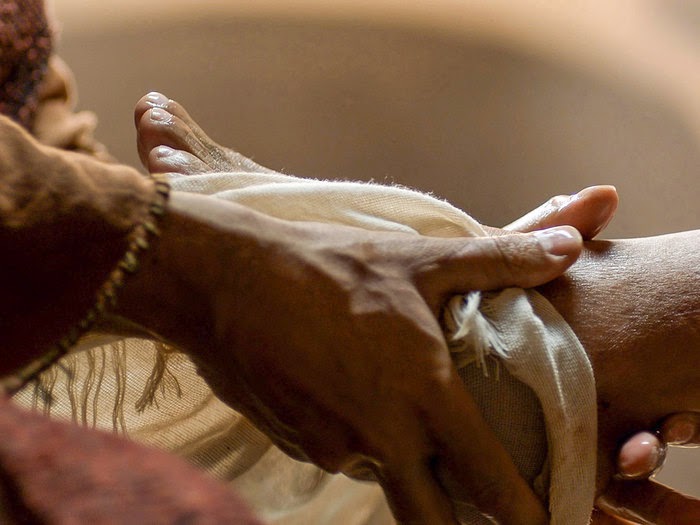Served by One Master
Luke 16:1-13
Fifteenth Sunday after Pentecost
Analysis by Peter Keyel
Then Jesus said to the disciples, “There was a rich man who had a manager, and charges were brought to him that this man was squandering his property. 2 So he summoned him and said to him, ‘What is this that I hear about you? Give me an accounting of your management, because you cannot be my manager any longer.’ 3 Then the manager said to himself, ‘What will I do, now that my master is taking the position away from me? I am not strong enough to dig, and I am ashamed to beg. 4 I have decided what to do so that, when I am dismissed as manager, people may welcome me into their homes.’ 5 So, summoning his master’s debtors one by one, he asked the first, ‘How much do you owe my master?’ 6 He answered, ‘A hundred jugs of olive oil.’ He said to him, ‘Take your bill, sit down quickly, and make it fifty.’ 7 Then he asked another, ‘And how much do you owe?’ He replied, ‘A hundred containers of wheat.’ He said to him, ‘Take your bill and make it eighty.’ 8 And his master commended the dishonest manager because he had acted shrewdly; for the children of this age are more shrewd in dealing with their own generation than are the children of light. 9 And I tell you, make friends for yourselves by means of dishonest wealth so that when it is gone, they may welcome you into the eternal homes.
10 “Whoever is faithful in a very little is faithful also in much; and whoever is dishonest in a very little is dishonest also in much. 11 If then you have not been faithful with the dishonest wealth, who will entrust to you the true riches? 12 And if you have not been faithful with what belongs to another, who will give you what is your own? 13 No slave can serve two masters; for a slave will either hate the one and love the other, or be devoted to the one and despise the other. You cannot serve God and wealth.”
DIAGNOSIS: Serving Two Masters
Step 1: Initial Diagnosis (External Problem): Dishonest in a Very Little
Dishonesty is something we don’t like. It’s not appropriate when it is rampant corruption in leaders, officials or trusted subordinates, like this dishonest steward. But. We “children of the light” also tend to be dishonest. Sometimes in only a very little, and we’re always or almost always good about making amends for it, or otherwise atoning. Not like that dishonest steward who cheats his master. Then we hear Jesus say that if we screw up a little, or are dishonest in some small thing, we must be dishonest in much. And this comes right after he tells a story about a big crook getting commended for it! If the parable is about lifting up a dishonest person winning friends by bribing them with someone else’s money, what gives? It’s offensive if nothing else.
Step 2: Advanced Diagnosis (Internal Problem): Unfaithful
Jesus doubles down on these offensive statements by condemning those who have “not been faithful with the dishonest wealth” and not being “faithful with what belongs to another.” The steward was not faithful by these accounts, either. But. The “children of light” are not even being this shrewd. What does it say about our faith, our trust in Jesus, if we are less capable in providing good news to our own generation than self-interested, dishonest stewards? Can’t Jesus see that in our hearts we are trying?
Step 3: Serving Mammon
Trying doesn’t provide good news to others. It doesn’t cut it. These actions show that despite our claims of being God’s slave, our hearts are not in it. We have a different master, Mammon. And we can’t serve both God and Mammon well, despite our best efforts. We are stuck in this hell between masters, and we cannot get out of this situation by our own effort or merit.
PROGNOSIS: Served by the True Master
 Step 4: Initial Prognosis (Eternal Solution): Served by Jesus
Step 4: Initial Prognosis (Eternal Solution): Served by Jesus
Our trying is the problem; it is Jesus’ effort that is our solution. Jesus comes to set the slaves free, and is buried with our attempts, dishonesty, and lack of faithfulness. Whether we are as clearly crooked, like the dishonest steward, or just dishonest “in a very little,” it is all buried with him. When Jesus is raised on the third day, God’s promise to us is that we shall be raised with Jesus too.
Step 5: Advanced Prognosis (Internal Solution): Faithful
God’s promise is not one conditioned on obedience from slaves. God’s promise will create the faith in the midst of no faith, even in those trying to serve two masters. Even though we were unfaithful with what belonged to God, Jesus’ promise is that it is now our own through God’s choice. That which belonged to God and is now our own is forgiveness of sins and mercy.
Step 6: Final Prognosis (External Solution): Entrusted with True Riches
We have been entrusted with these true riches that once were not our own. The big question is how will we spend these riches of forgiveness and mercy for the undeserving? The dishonest steward used a rich man’s wealth to help others. His motivation in helping others was to help himself, but he still helped others. How will we use our true riches to help others and give them Good News?





You must be logged in to post a comment.